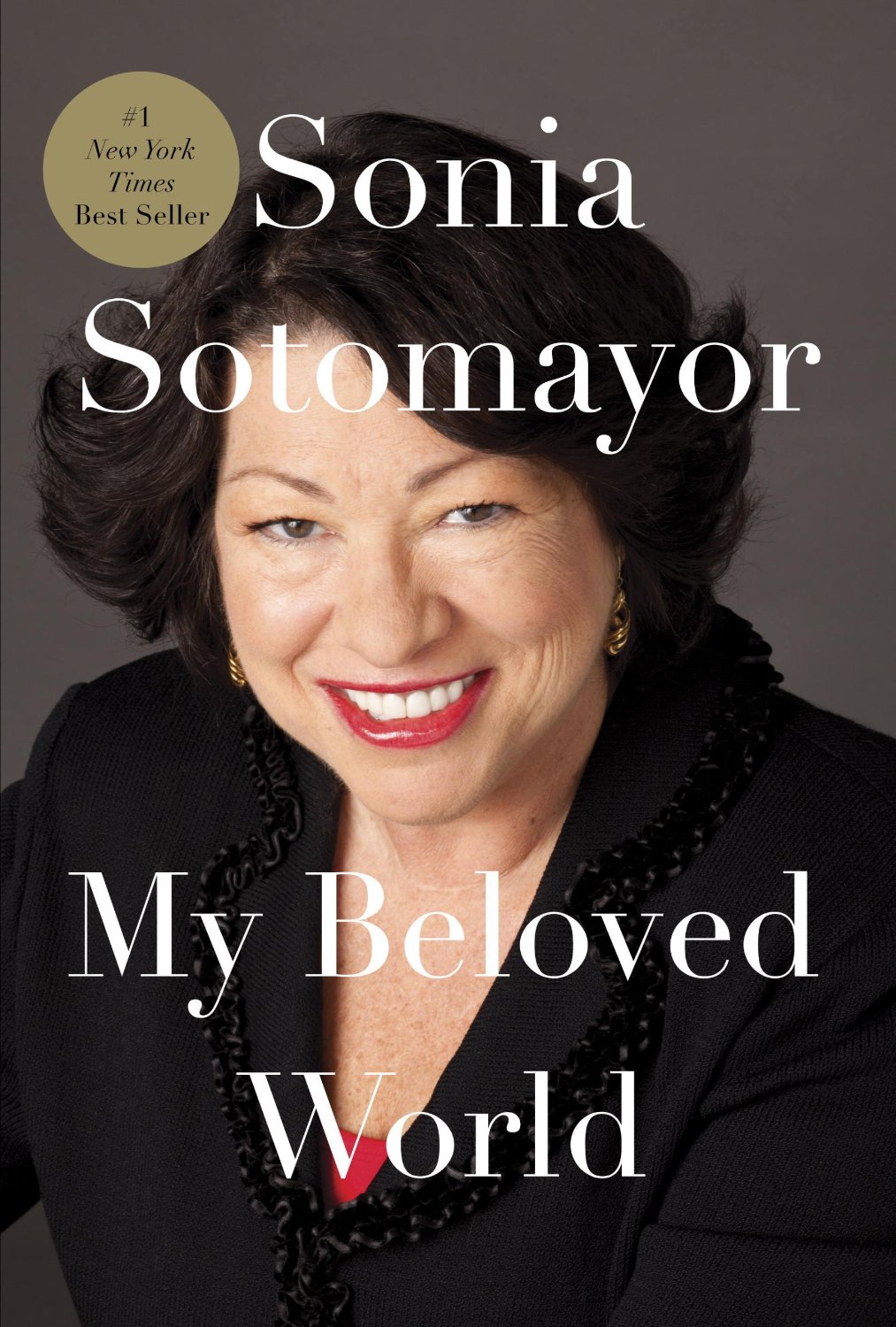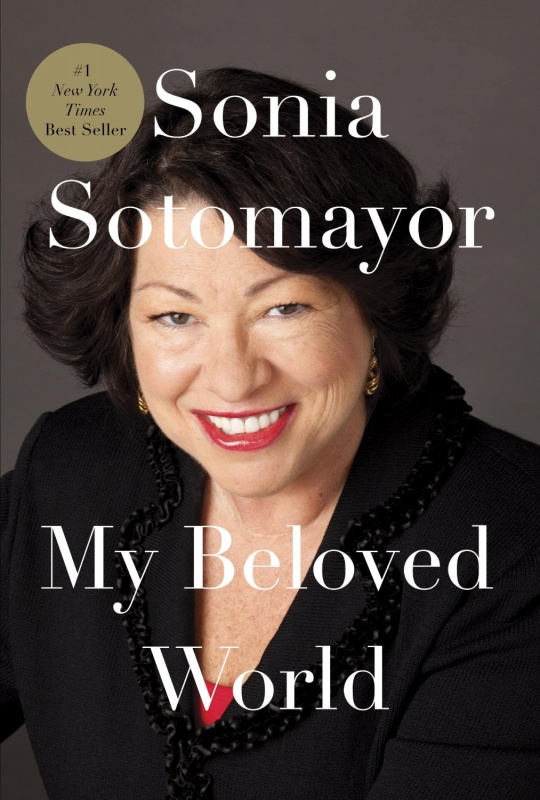13 Oct / My Beloved World by Sonia Sotomayor

 As National Hispanic Heritage Month draws to a close this week, the audible rendition of this empowering memoir is an ideal celebration of two of the most legendary contemporary Latina heroes: Rita Moreno, the only actress ever to have taken Oscar, Tony, Grammy, and two Emmys home, voices the words of the country’s first and only Latina Supreme Court Associate Justice Sonia Sotomayor. Talk about dynamic duo: Moreno couldn’t be a better choice, and to have the good Justice herself read the “Preface” and “Prologue” is undoubtedly a precious gift.
As National Hispanic Heritage Month draws to a close this week, the audible rendition of this empowering memoir is an ideal celebration of two of the most legendary contemporary Latina heroes: Rita Moreno, the only actress ever to have taken Oscar, Tony, Grammy, and two Emmys home, voices the words of the country’s first and only Latina Supreme Court Associate Justice Sonia Sotomayor. Talk about dynamic duo: Moreno couldn’t be a better choice, and to have the good Justice herself read the “Preface” and “Prologue” is undoubtedly a precious gift.
“I have ventured to write more intimately about my personal life than is customary for a member of the Supreme Court, and with that candor comes a measure of vulnerability,” Sotomayor introduces her life story. Indeed, even as she writes openly about the many, many challenges she has faced, what distinguishes My Beloved World among so many notable memoirs is Sotomayor’s refusal to be anything less than forthright and unguarded. Readers will find nothing that resembles aggrandizement, histrionics, hyperbole here – quite a rare achievement in today’s schadenfreude-driven bestseller lists.
“I will be judged as a human being by what readers find here,” she continues. “There are hazards to openness, but they seem minor compared with the possibility that some readers may find comfort, perhaps even inspiration, from a close examination of how an ordinary person, with strengths and weaknesses like anyone else, has managed an extraordinary journey.”
Sotomayor’s life trajectory is not unfamiliar: the daughter of struggling immigrants grows up in the projects, manages to get an Ivy education in spite of an alcoholic father and distant mother, and rises to the top of her field. But the specifics, of course, are what distinguishes Sotomayor’s story as unique and unforgettable. Diagnosed with juvenile diabetes, when Sotomayor commands the insulin-filled needle and administers her own shot at just age 8, she literally takes control of her young life and never looks back. Her alcoholic father dies when she’s 9, her mother is unable to cope with a silent home that was usually filled with spousal acrimony, her brother is little more than “a nuisance as only a little brother can be.” Growing up surrounded by a lively, sprawling Puerto Rican family in and around the Bronx, she’s buoyed by the unwavering support from her paternal grandmother. She never stops comparing herself to the one beloved cousin most like herself – smart, tenacious, who has the kind of father she always wished for – who tragically makes all the unfortunate choices that fuel his descent into drugs and early death.
Without real-life heroes, Sotomayor was enthralled by the fictitious Perry Mason, who appeared every Thursday night on the family’s small black-and-white screen. Her diabetes wouldn’t allow her to be a detective, she surmised, even though her “mind worked in ways very similar to Nancy Drew’s,” but a lawyer could work with a detective, as could a prosecutor. “Most of all it was the judge who fascinated me.” Inspired by primetime, Sotomayor attended Princeton on full scholarship (where she threw away her Phi Beta Kappa membership invitation thinking it was junk mail), then became that lawyer with a Yale Law degree (even as she made national headlines for earning a full apology from a powerful DC partner for his sexist, racist remarks during a recruiting interview). She moved back to New York into the District Attorney’s office as a prosecutor, transferred to an exclusive private firm from which she became the Fendi family’s personal counsel, and eventually achieved her Perry Mason-fueled childhood dream of becoming a judge.
That Country ends 20 years before Sotomayor makes Supreme history (“[s]ome readers may be disappointed,” she notes), offers hope that another volume of her compelling journey may someday be forthcoming. Hero that she continues to be, we all (respectfully) are left wanting to know more.
Readers: Young Adult, Adult
Published: 2013
